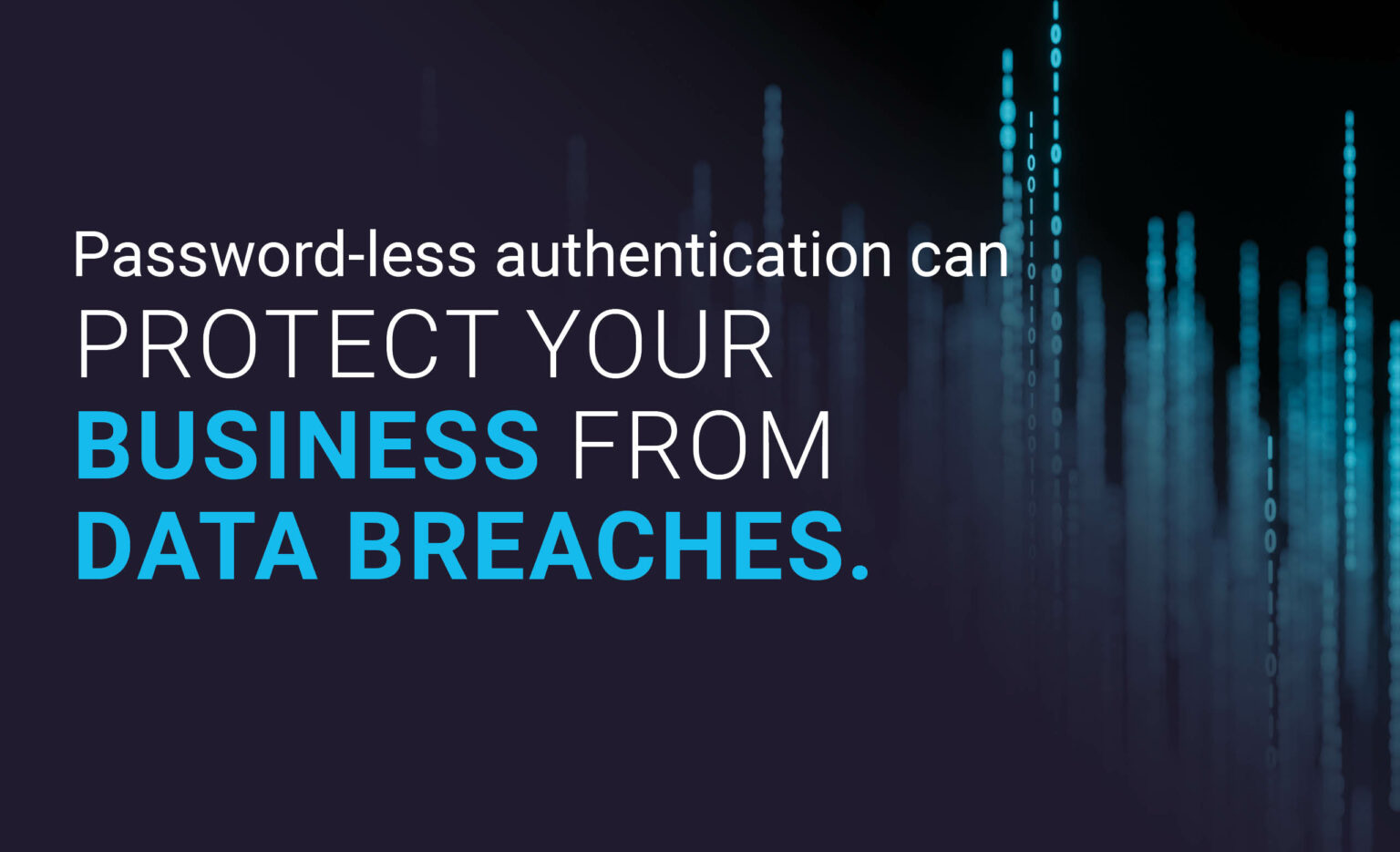The world of IT is developing and as we move forward into the future of digital, it seems that the idea of passwords is becoming a relic of the past.
The cons of password-based authentication are beginning to outweigh the benefits and password choices are becoming more predictable, causing our accounts and personal data to become vulnerable to cyber-attacks.
As enterprises of all types come to the conclusion that passwords are becoming more of a security risk than an asset, they are turning to password-less authentication as a solution to the problem.
What are the benefits of password-less authentication?
Ask yourself, how many times have you had to request a password reset? Clicking on the “forgot password” link has become a common occurrence for many of us, but password-less authentication eliminates the risk of such security mismanagement.
Even if you can remember your password, is it secure enough and private enough to protect your private information? According to Verizons 2021 Data Breach Report, 84% of data breaches stem from credential vulnerabilities.
The best way around this is to eliminate the number and level of credentials required in your daily IT-based life, and this is where password-less authentication comes into play, representing a process or action that a user must take to log in to an information system without entering a password or any other information-based attribute.
Common password-less authentication methods can include verifying the possession of a secondary device or account that a user has, or a biometric trait that is unique to them, like their retina, face or fingerprint.
In eliminating the use of passwords, these procedures can streamline user experiences and potentially reduce the threat of data breaches and cyber-attacks.
A streamlined user experience
An average IT user is likely to have dozens of passwords to remember from both their professional and personal lives. Therefore at some point there will inevitably be a temptation to write down or repeat passwords, ironically creating a potential cyber-security risk in the pursuit of maintaining security.
From the point of view of the user, password-less authentication can yield a smoother experience than the traditional inputting of a username and password – it also adds peace of mind by reducing the number of factors an individual has to recall.
The added security of password-less authentication also provides peace of mind for business operators looking to eliminate risk factors associated with logins within their organisation. Not only that, but such methods can also save money as password-less authentication is now becoming widely recommended as part of cyber-insurance reduction requirements.
Overall, with password-less authentication there will be no more password management, no more password resets and no more complex security passwords to remember.
Guidance from sources of cyber knowledge
Although password-less authentication does appear to have a lot of benefits, there is still a variety of opinion when it comes to guidance from professional cyber sources.
The National Cyber Security Centre (NCSC), the UK authority for cyber-assurance, states that passwords are currently applied in many areas where they are not appropriate and their use should be minimised. Where alternatives cannot be used, the NCSC suggests using multi-factor authentication. As well as protecting and monitoring management systems, in order to ease the burden on users the NCSC advises against the use of regularly expiring passwords and for the implementation of password management software and other secure storage facilities.
Cyber Essentials Plus requirements, on the other hand, suggest that accounts that are accessible from the internet should have multi-factor authentications alongside a password that is of a pre-defined complexity and expires after a maximum of 90 days. However, as it is imperative for IT experts to maintain a balance between both the user experience and the reduction is security risks, multi-factor authentication measures could disturb this balance, given that this method has the potential to become complicated for the user.
Adapting to authenticate
As the world of digital adapts, so must we. With the risk of cyber-attacks ever on the increase, individuals and organisations of all sizes need to do all they can to protect their data.
From a business point of view, there are financial implications, too. Most, if not all, IT support desks will report a significant increase in password reset requests following the Christmas break and even with a user-deployable password reset solution, time and effort is required to manage the resolution of this human error.
Password-less authentication is a long-term approach for a secure future in cyber technology, and it is continually developing to offer increased security for users. Xpertex delivers technology solutions that can integrate with MS Azure’s AD on-premise and Cloud-based architecture.
Contact Xpertex today on +44 (0) 203 021 0749 or visit https://www.xpertex.com to find out more information.




